Man acquitted of murdering wife 36 years ago breaks his silence
He was acquitted of murdering his wife Eva 34 years ago but George Webel has never before spoken publicly about it — until now. The 76-year-old pensioner spoke for the first time to The Sunday Telegraph’s Yoni Bashan about his wife’s unsolved murder and its impact on his life. LISTEN TO THE PODCAST
NSW
Don't miss out on the headlines from NSW. Followed categories will be added to My News.
There is only one question that makes George Webel visibly uncomfortable during our interview about the murder of his wife Eva.
For almost an hour the 76-year-old pensioner has breezily dealt with allegations of his involvement, the murder charge against him, the relief at being found not guilty and the fact he remains a person of interest to police.
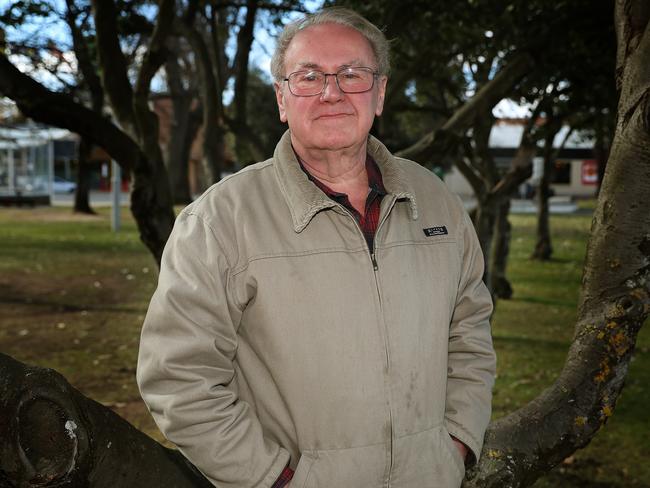
But when I ask if he’d like to make a public appeal to find the real killer, to raise awareness of the case, something he hasn’t done in the 36 years since Eva’s death, Mr Webel immediately baulks.
“Nah,” he says. “No thank you. Call me selfish if you like, but nah.
“I worry that if I start making waves perhaps that bastard that did it finds me and then my life’s in danger too. I’ve got kids, I’ve got grandkids. I have to think of them.”
Mr Webel, a Hungarian-born man who speaks with a slight accent, was acquitted of the crime in 1985, two years after the murder.
The story might have ended there but for its striking similarity to the murder of another Sydney mother, Denise Govendir, killed 15 years later.
Apart from being close friends, both women were divorcing their husbands at the time of their deaths, neither had any known enemies and each died in virtually identical circumstances.
In 2015, The Sunday Telegraph launched The Alibi, an investigative podcast that explored the similarities between the two cases, plus a number of other links between the crime scenes. Both women were bashed in their homes.
MORE FROM YONI BASHAN
Brazilian waitress on student visa in major drug bust
Criminals stockpiling guns as bargaining chips
Their deaths were caused by blunt objects that haven’t been located. They sustained head injuries. The crime scenes appeared to look like robberies. And both husbands, long-time friends, stood to make significant financial gains.
Unlike the Webel case, no charges have been laid over Denise Govendir’s murder.
Coronial hearings unpacked the investigation in detail, the coroner noting that the “preponderance of evidence weighed very much” towards her husband Aaron Govendir but that there was insufficient evidence to draw any conclusions.
Mr Govendir told police during the initial investigation that his wife had been killed during a home invasion, with the assailants knocking him out when they entered the house.
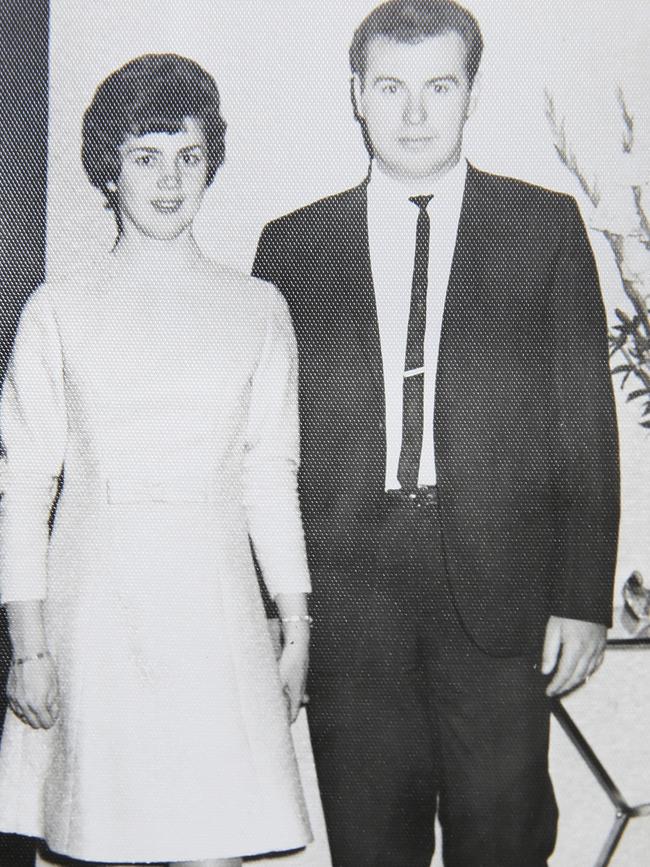
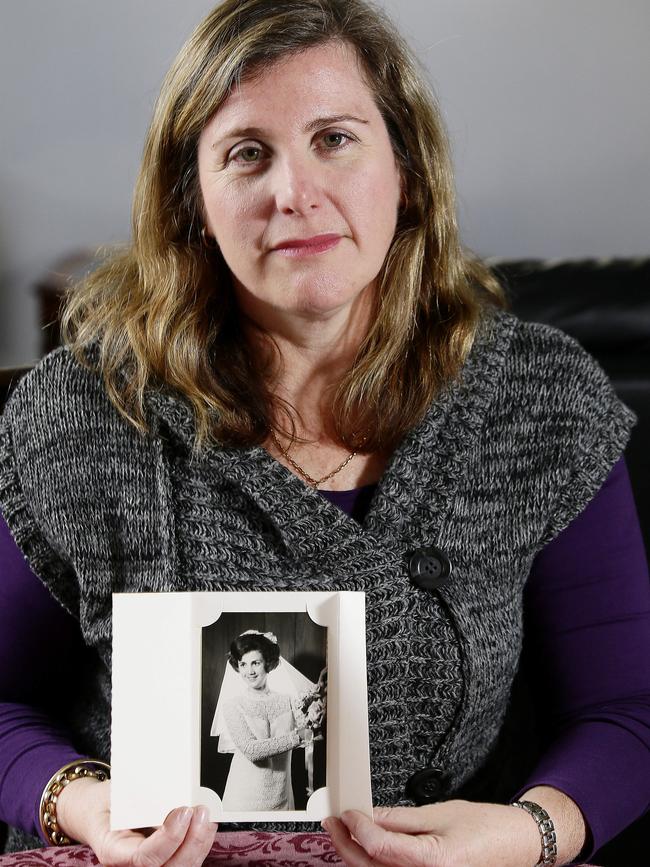
He, like Mr Webel, has declined to appeal for information to find his wife’s killer. When last contacted he refused an interview.
“Look, okay, same circumstances,” Mr Webel says bluntly of the Govendir case.
“But I wasn’t even in the country. I was in Europe at the time.”
This is true. Between 1993 and 2017 Mr Webel lived outside Milan in Italy.
But both the police and the coroner still regard him as an important witness in the Govendir case. So much so that they summoned him to give evidence during the coronial hearings.
Highlighted in court was the fact he had returned to Australia in the weeks leading up to the crime and he had spoken to Aaron on several occasions during that period.
But this, as Mr Webel points out, is unremarkable. He regularly returned to Australia to celebrate his mother’s birthday.
“When I was here, yes, I did contact Aaron. But I also contacted Denny when she was still alive,” he says.
“I’ve been friends with Aaron, his wife, his kids since about 1972.”
But the coroner noted her displeasure with Mr Webel’s responses in the witness box.
“Little of what you’ve told me has been truthful. You’ve avoided answering truthfully a lot of the questions and the answers that you have given just don’t make sense,” she said, before handing down an open finding in 2008.
The case remains with the Unsolved Homicide Squad where, 11 years on, it hasn’t been re-examined.
Denise’s cousin, Michael Freedman said: “We maintain a hope that the police will reopen the case. We have become disappointed with the unwillingness of the DPP to reconsider the facts in light of the information you revealed.”

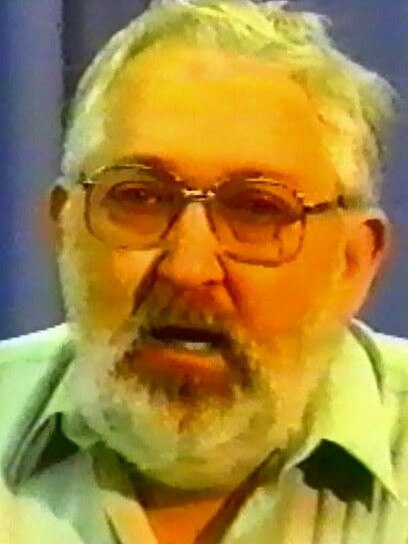
George Webel agreed to be interviewed only because he believes The Sunday Telegraph’s coverage has tainted his reputation.
He wants the articles about him removed from the internet. I tell him this will cruel what little awareness remains of his wife’s murder.
“The case will never be solved,” he says, blaming police incompetence.
“That bloody thing has been so cold it’s not even funny. And there’s just no way that they’ll find anything.”
Our discussion is grim and sad, but Mr Webel is droll, sometimes comical in his answers.
He laughs off questions, dispatching them with strong defences of his innocence, or pithy one-liners.
“My last bloody fight I won by about 20 yards,” he says, to make a point about his non-violent demeanour.
But some answers seem curious. When I ask if his wife was a good woman, he says: “How do you answer a thing like that? That’s a question like how long is a piece of string.”
Then, he clarifies: “She was a good mother most of the time and, like I said, we just grew apart. I probably shouldn’t have gotten married. I couldn’t keep my hands off women.”
Two years ago he moved back to Australia from Italy, settling on a property outside a rural NSW community where he maintains a fairly solitary existence.
He wants to join community and social organisations, like Lions and Rotary. But his applications have been rejected.
The articles about his wife, he says, are the problem.

Eva Webel’s body was found beaten, bruised and strangled in her living room on the morning of October 26, 1983. She and her husband were living separately at the time — Eva at the family home on O’Donnell St, North Bondi, with the two children, both of whom had left for school, he in nearby Rose Bay.
Both were seeing other people.
Police immediately suspected Mr Webel of the crime. A magistrate disagreed, tossing out the murder charge at the committal hearing in 1984.
A year later he was put on trial using an ex-officio indictment, granted by the Attorney-General.
The jury was presented with a web of circumstantial evidence. The motive, police alleged, was money. He was struggling financially, had allegedly increased Eva’s life insurance payout, and had been infuriated by Eva’s request for maintenance payments, served four days earlier by a private investigator.
This point still rankles: “She could have just rang me and we could have sat down and discussed it. That’s what upset me most.”
Another allegation was that he had tried hiring a hitman through an acquaintance, small-time criminal Willie Taylor, who gave evidence at the trial.
Mr Webel still scoffs at the notion. “How the bloody hell could I have afforded a thing like that? If I’m grumbling about a few bucks of maintenance, where the hell would I get money for a hitman?”
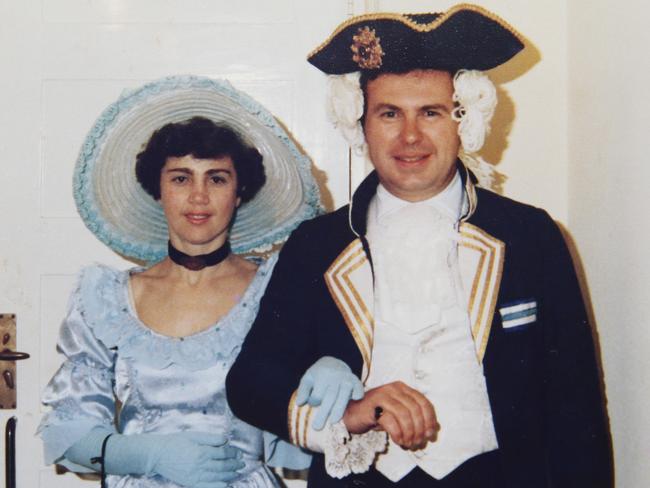
Arguably the Crown’s strongest piece of evidence came from Margaret Beattie, a neighbour of Eva’s, who allegedly saw Mr Webel driving away from the crime scene about 9am, about the time the murder happened.
“Was there anyone else in the car?” the prosecutor asked.
“No, just George,” Ms Beattie said.
The crucial alibi to neuter this evidence came from Aaron Govendir, Mr Webel’s close friend, who said he’d called Mr Webel at home and spoken to him about 9am, meaning he couldn’t have been at the crime scene.
“He said, ‘I can’t talk to you I am in the shower’ or something like that,” Mr Govendir told the court.
The jury returned their verdict in one hour and 14 minutes — “Not guilty”.
“It’s virtually standard procedure,” Mr Webel says of his arrest.
“Where there’s a murder, and especially if divorce is (involved), 99.999 per cent of the time they grab the husband.”
Still, after 36 years, he has no working theories about who might have killed his wife or Mrs Govendir, or why.
“I’m funny like that — if I can’t understand something, well, bugger it, I just ignore it, hoping like hell it goes away. And I thought it did go away, until I found your thing,” he says, referring to the news articles.
But he is certain of two things: First, he had nothing to do with the crimes. Second, his friend Aaron didn’t either.
Have they been in contact since his return to Australia? Only once, Mr Webel says. A short phone call.
“He said, ‘I’m not allowed to talk to you’, and hung up the phone.”


